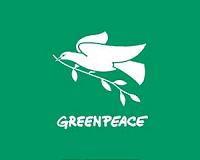 |
Umm Qasr, Iraq (AFP) Sept 27, 2010 A new US-built patrol ship is the latest phase in a naval build-up by Iraq that has one key mission in mind -- protecting the oil terminals that are the government's main source of revenue. For now, while Iraq's fledgling fleet is charged with key facets of defence at the two Gulf terminals through which 80 percent of its crude exports flow, foreign forces still retain ultimate responsibility for their security. That will soon change, however, with US forces set to withdraw from the country completely in just 15 months, and British naval trainers due to depart in November, although a deal is being discussed to allow them to stay longer. The formal handover of P-301, a brand new high-speed patrol boat, on Iraq's Navy Day on Sunday was touted by US and British officers as a key move for a country that relies on oil sales for 95 percent of its income. "We are seeking to build a defensive navy, and are not trying to enter an arms race in the region," Defence Minister Abdul Qader Obeidi said at the ceremony at Umm Qasr Naval Base, 500 kilometres (310 miles) south of Baghdad. Eschewing the bottle of champagne that is traditionally broken against the bow of newly acquired vessels in the Western world, a sheep was slaughtered on the pier to mark the boat's entry into service with the Iraqi fleet. Iraq is to take delivery of a further 14 of the US-built Swift Class boats, each costing about 20 million dollars, before US forces leave at the end of 2011, adding to an existing 47-vessel fleet. It will also receive two larger offshore support vessels, each worth around 70 million dollars, next year. The new additions to the Iraqi fleet come as the country seeks to ramp up oil output as much as five-fold in the coming years, bringing in much needed revenue for a war-battered economy. And while Iraq's coastline measures just 80 kilometres (50 miles), its territorial waters are home to the Al-Basra and Khor al-Amiya offshore terminals, through which around 1.7 million barrels per day of oil are exported, bringing in billions of dollars in revenue. "We are out there to protect the terminal from any threat that might occur," said British Royal Navy Captain Andrew Betton, the senior officer in charge of the terminals' defence. "It's very similar to inland -- that is, the risk of insurgent activity against the terminal." Asked what was the most likely threat, he said a boat packed with explosives being rammed into a terminal. Insurgents mounted such an attack in April 2004 using three boat-borne suicide bombers. Security forces foiled the attack but at the cost of three US sailors' lives and the suspension of oil exports for more than a day. Were another similar attack to be attempted now, it would fall largely to Iraqi security forces to deal with it. "They are increasingly able to police their own territorial waters," Betton said. "I am completely confident in the middle of next year, towards the end of next year, the Iraqi navy will be ready to stand on their own two feet. "The delivery of the first of this new class of ship is a very significant step towards attaining the level of capability they need." The new patrol boats were "specially designed" for Iraq's requirements of securing oil terminals, said Art Divens, a civilian working for the US Department of the Navy. "It's very quick in being able to deploy rigid inflatable boats for the protection of oil platforms. So it's primarily designed for protection of an oil platform, and it's very unique to the requirements of Iraq," he said. "They will make sure there is a secure perimeter, to make sure nobody comes in to disrupt the flow of their natural resources out of the country," he added. Betton noted that since the Iraqi navy's re-establishment in 2005 -- it was essentially destroyed by the 1991 Gulf War and the US-led invasion of 2003 -- "various elements of that protective umbrella have been handed over to the Iraqi marines and the Iraqi navy." Specifically, they are responsible for security on both terminals and perimeter surveillance for the Khor al-Amiya terminal, while US and British ships are responsible for perimeter surveillance for Al-Basra. But for the time being at least, foreign forces retain "ultimate responsibility for the overall package of defence," Betton added.
Share This Article With Planet Earth
Related Links Powering The World in the 21st Century at Energy-Daily.com
 Greenpeace restarts protest on North Sea drill ship
Greenpeace restarts protest on North Sea drill shipLondon (AFP) Sept 27, 2010 Greenpeace blocked an oil drilling ship in the North Sea with swimmers and speedboats a day after a court ordered protesters to unchain themselves from the vessel, the group said Monday. Activists for the environmental group had boarded the Stena Carron ship operated by Chevron and anchored off the Shetland Isles last week, but the oil giant won a legal ruling ordering them to leave on Satur ... read more |
|
| The content herein, unless otherwise known to be public domain, are Copyright 1995-2010 - SpaceDaily. AFP and UPI Wire Stories are copyright Agence France-Presse and United Press International. ESA Portal Reports are copyright European Space Agency. All NASA sourced material is public domain. Additional copyrights may apply in whole or part to other bona fide parties. Advertising does not imply endorsement,agreement or approval of any opinions, statements or information provided by SpaceDaily on any Web page published or hosted by SpaceDaily. Privacy Statement |